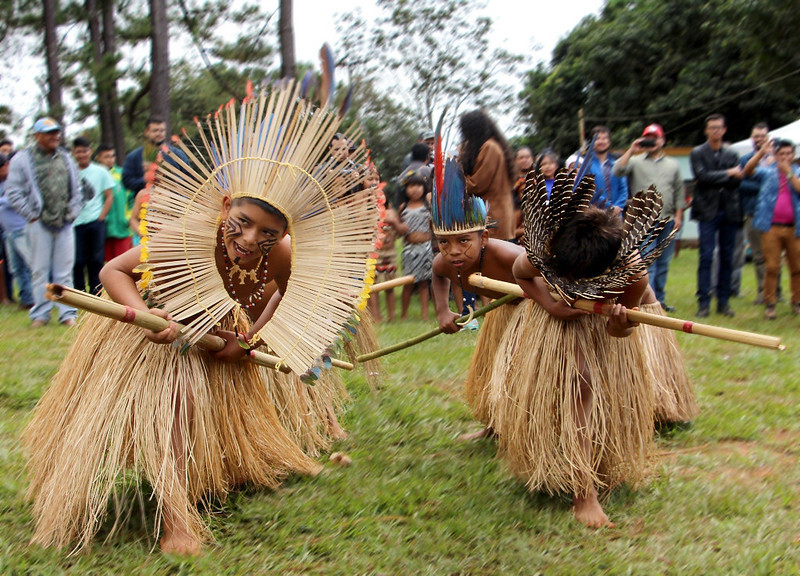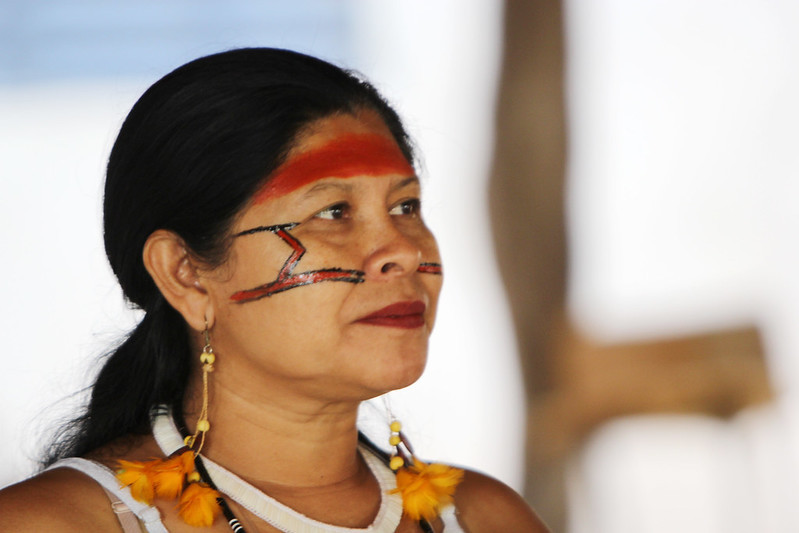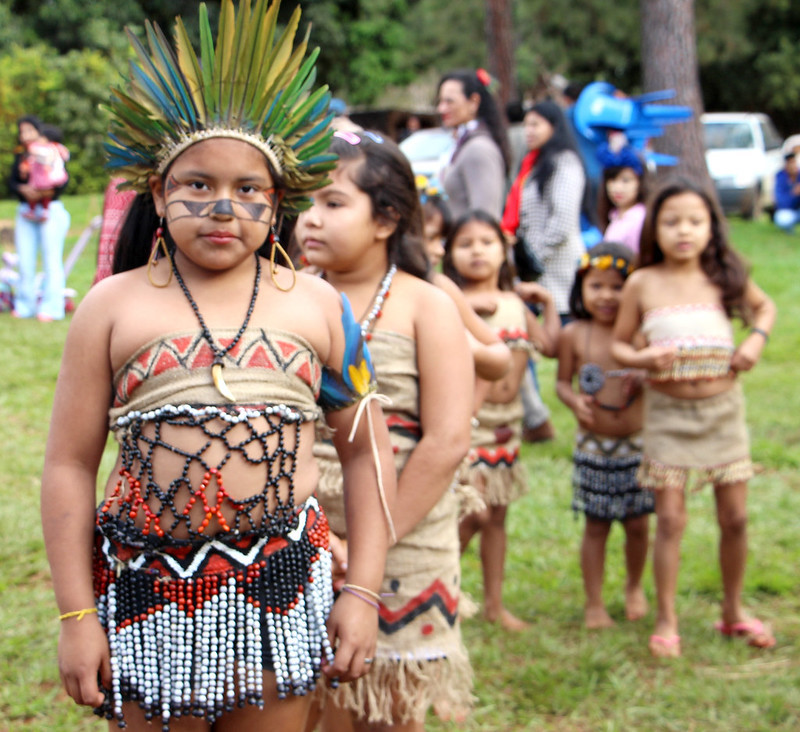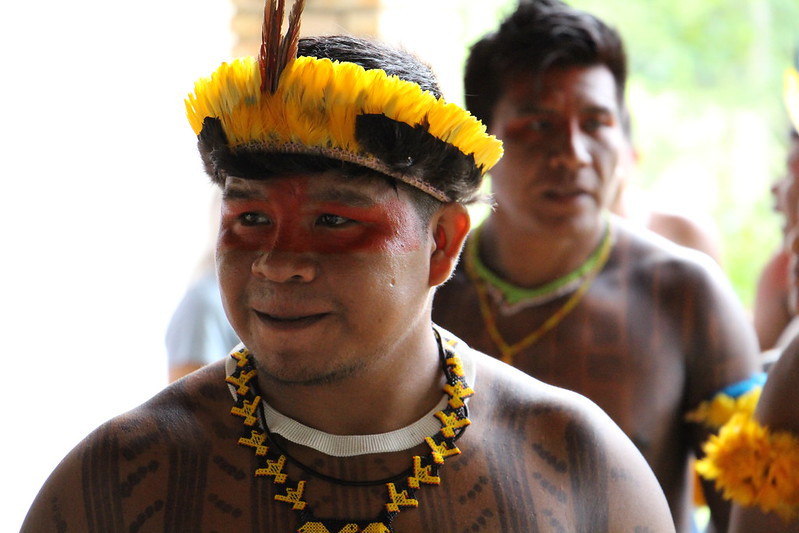Since 1992, the CNS Commission, which was coordinated by Zelda Arens, has condemned the situation of illegal mining in indigenous territories.

The Intersectoral Indigenous Health Commission was one of the first commissions established by the National Health Council in 1991, in response to demands from indigenous leaders throughout Brazil. Since then, Cisi/CNS has established itself as a space for democratic social control through debates, demands, complaints and referrals on the National Indigenous Health Care Policy (PNASPI).
To celebrate the importance of Indigenous social engagement in constructing and monitoring public policy over these three decades, the National Health Council is promoting the CISI 33rd Anniversary Symposium. The event will be held on May 14, from 9 a.m. to 6 p.m., in the hall of the National Foundation for Indigenous Peoples (FUNAI), in Brasilia.
At the opening of the activity, the documentary film “33 Years of Existence and Resistance in Ensuring the Moral and Racial Health of Indigenous Peoples in Indigenous Territories” will be launched. The medium-length film features testimonials from National Health Advisors and other members who work or have worked at CISI since its inception. The film depicts the challenges of social engagement within the Unified Health System (SUS) in constructing and evaluating Indigenous health policies.
The symposium program also includes three discussion panels: Cisi’s 33 Years in Indigenous Health Advocacy, Cisi’s Importance in Indigenous Health and Indigenous Health Policy Today. Entities such as SESAI/MS, Funai, Apoime, Apib, MPF, CNBB and the Brazilian Anthropological Society are participating in the discussions.

Mining and health neglect
Since the first year of its activities, Cisi has already condemned the situation of mining exploitation on indigenous lands, especially in Yanomami territory. For example, Proposal No. 3/92, published in November 1992, requested the removal of invasive gold miners from the area and the strengthening of control measures. The Committee also played a key role in clarifying the implementation of the Convention Arocca’s lawdated 23 September 1999, which established the Subsystem for Indigenous Peoples’ Health Care (SasiSUS).
In 1999, the CNS reorganized Cisi, coordinated by Zelda Arnes Newman, a public health physician and representative of the National Confederation of Brazilian Bishops (CNBB). His contribution was significant to the implementation of the differentiated care model for Indigenous health in the United States, where he played an important role in the approval of Arauca’s Law.

“Cisi played an essential role in strengthening and building the indigenous health subsystem. “Initially, she played a legislative role with the bodies and even with the National Congress, gathering allies to approve the Arauca Law, which supported the indigenous health system,” highlights Realdo Méndez, General Coordinator of Cisi, and Representative of the Articulação dos Povos Indigenous Peoples of the Southern Region (Arbinsol).
Luiz Penha, an indigenous Tucano people (São Gabriel da Cachoeira, Amazonas), represents the Coordination of Indigenous Organizations in the Brazilian Amazon (Coiab) in the CNS. He defends the importance of Cisse’s work for indigenous areas, especially in light of the new political situation, so that votes can reach as close as possible to the executive branch. “We know the differences between each people and region, each person has a different way of leading. He considered that Sisi has this role of trying to act and deliberate specifically on the demands of each region, while respecting these differences.”
Warnings about increasing cases of cholera and malaria, and even the absence of health information systems targeting indigenous populations, were among the agendas worked on by the Commission, which always articulated its actions in a strategic way to combat the disease. Violation of rights, threats and deaths of indigenous leaders and pollution of rivers and the environment with mercury.

During this period, Cisi found that among the main obstacles that hindered further progress in implementing indigenous health policies were difficulties in administration, lack of autonomy and interruptions in the training and monitoring of indigenous health districts, and especially land conflicts and indigenous-related obstacles. Demarcation of regional boundaries.
In 2023, CISI was part of a CNS delegation that went to Yanomami territory to dialogue with local Indigenous leaders and workers working in the Indigenous Health District, the Public Ministry, the Public Defender’s Office and Funai. monitoring Hotukara Yanomami Association HAY noted that illegal mining activity grew by 54% in 2022 alone, in addition to 1,782 hectares of destruction. Between October 2018 and December 2022, cumulative deforestation reached 309%.
Cisi’s mission is to advise the National Health Council in monitoring the health of indigenous peoples through cross-sectoral coordination with governments and organized civil society, practicing listening to the needs of indigenous peoples and providing the CNS with the necessary conditions to formulate policies that are accessible to these populations. High-quality, humane and welcoming health care, in accordance with the culture of each people.
Nadwa 33 years of Sisi
When: May 14
Where: from 9 am to 6 pm
Location: Funai (Ed Parque Cidade Corporate SCS – QD9 – Torre B, 2nd floor – Asa Sul, Brasilia).

